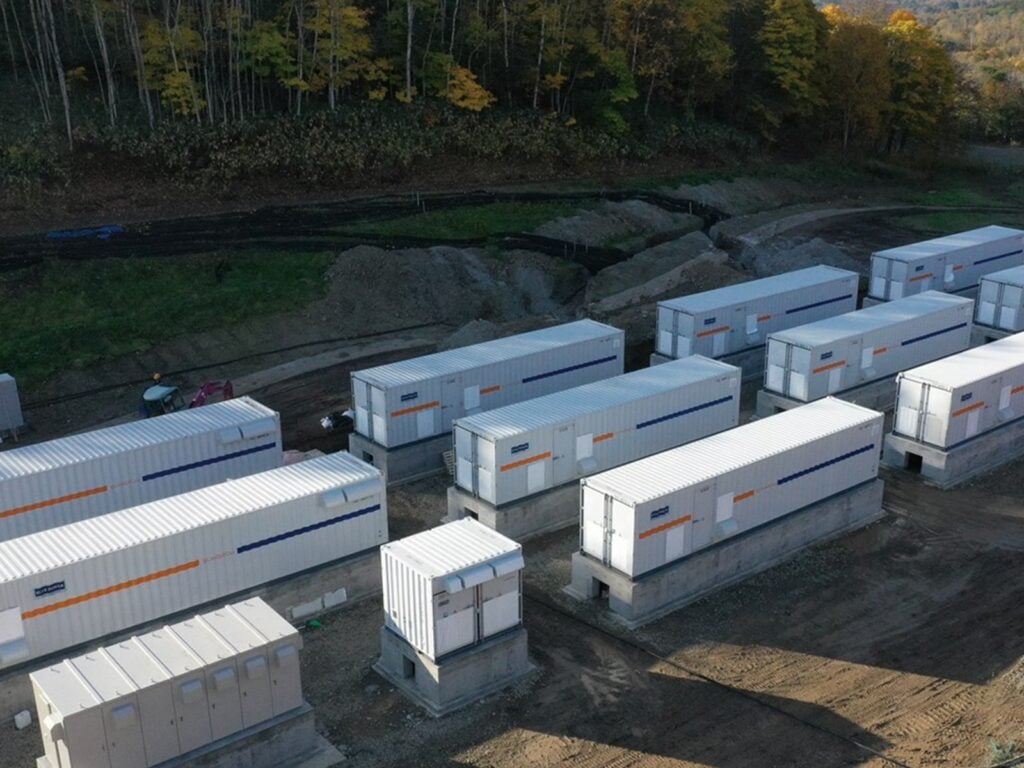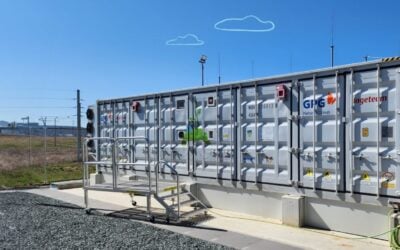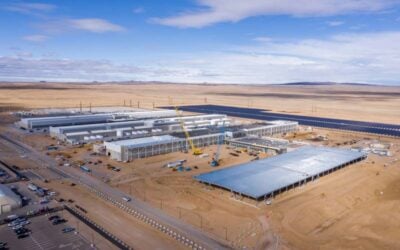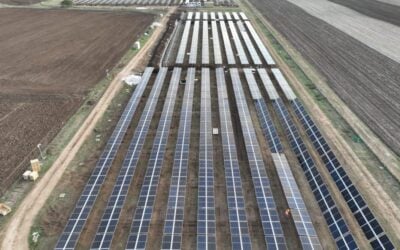
Japanese conglomerate Itochu, one of the country’s leaders in residential battery storage sales, is launching its first grid-scale project with utility Osaka Gas and finance group Tokyo Century Leasing.
Itochu works in diverse areas including domestic and international trading and homebuilding to textiles, metals and minerals, machinery, finance, realty and energy. Through its energy arm, the company had sold around 55,000 home battery storage units as of January this year.
Enjoy 12 months of exclusive analysis
- Regular insight and analysis of the industry’s biggest developments
- In-depth interviews with the industry’s leading figures
- Annual digital subscription to the PV Tech Power journal
- Discounts on Solar Media’s portfolio of events, in-person and virtual
The corporation announced yesterday the launch of its new business Senri Chikuden (Senri Power Storage). The three partners will establish a grid-scale battery energy storage system (BESS) project with 11MW output and 23MWh energy capacity in Suita City, Osaka Prefecture, western Japan.
Itochu will procure battery storage equipment and power conversion system (PCS) components from its own network of contacts, and will construct the system as well as carrying out maintenance.
As well as providing the land for the project, Osaka Gas will trade the battery system’s stored energy in power markets, leveraging its experience of energy trading with more conventional assets. Tokyo Century Leasing meanwhile will manage the business’ operations.
Construction of the lithium-ion battery storage system is expected to begin in the first half of the 2023 fiscal year, to go into commercial operation in the 2025 fiscal year.
It marks the latest move by a big player in the Japanese energy market to target participation in the country’s battery storage space, which despite Japan’s history of having played a role in the creation of lithium-ion batteries and its rapid uptake of residential batteries – mostly for self-consumption of solar and as backup power in case of natural disasters – has been slow to gain traction.
Itochu pointed out that it is creating products to meet expected demand for storage at commercial and industrial (C&I) facilities as well as at utility-scale. The company in its release about the project highlighted that energy storage needs to play a major role in enabling Japan to reach its 2050 policy goal of carbon neutrality.
Net zero Japan needs energy storage
Solar PV will be a big component of a net zero Japan, but it will be challenging to achieve the required capacity of solar and other renewables to be integrated into the country’s network of grid, solar market analyst Chris Wilkinson at Rystad Energy wrote in an article published earlier this year in our quarterly journal, PV Tech Power (Vol.34).
To fulfil Japan’s solar potential and reduce its heavy reliance on imported fossil fuels, “a fully developed BESS industry will be necessary to provide developers the flexibility they require to avoid curtailment, earn revenue and further promote development of not only solar but all renewables,” Wilkinson wrote.
The analyst said that while the BESS industry is “still nascent” in Japan, the government has understood its necessity and in recent years made some policy changes to encourage the technology’s adoption.
These include adjusting legislation to allow standalone battery storage to connect to the power grid and issued one round of subsidies worth about US$100 million to support projects with up to half construction costs for projects larger than 10MW.
Meanwhile, regulatory changes to allow for more transparent trading of energy and supply of services to the grid such as frequency regulation are gradually being made – Itochu said its Senri project will trade in Japan’s newly opening capacity market as well as trading wholesale power and “supply/demand balance power” – and although it still appears to be early days in terms of creating a bigger opportunity for BESS, other major players are entering or ramping up efforts in the sector.
That includes a 48MW/113MWh BESS under construction by financial services group Orix and utility Kansai Electric Power Company, set to be in operation by 2024 and other Japanese conglomerates like Mitsubishi Corporation and Toyota Tsuho working on smaller projects of about 1MW each, presumably ahead of scaling up for future projects.
Only one region of Japan, the northern inhabited island of Hokkaido, has seen significant BESS development. This is due to the island offering plenty of land for large-scale renewables, but lacking grid capacity and relatively little interconnection with the rest of Japan, leading its regional power company Hokkaido Electric, to stipulate that all new renewable energy facilities must be paired with a certain amount of energy storage.
Energy-Storage.news’ publisher Solar Media will host the 1st Energy Storage Summit Asia, 11-12 July 2023 in Singapore. The event will help give clarity on this nascent, yet quickly growing market, bringing together a community of credible independent generators, policymakers, banks, funds, off-takers and technology providers. For more information, go to the website.






